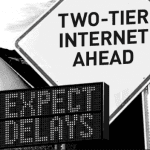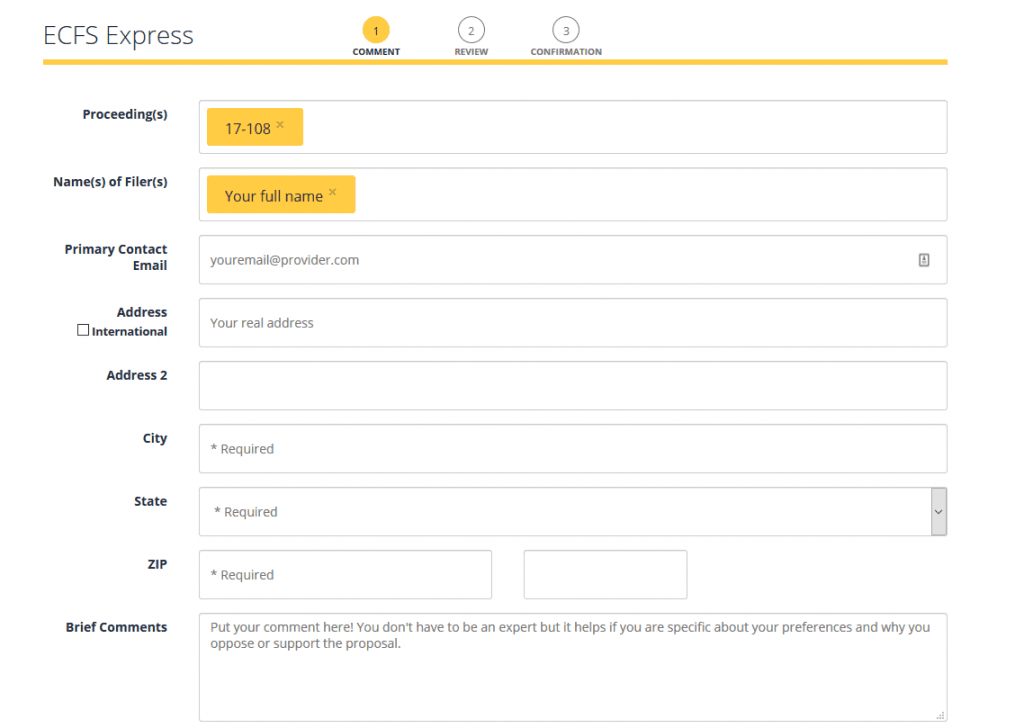Last week, Senator Maria Cantwell held a Seattle Town Hall meeting with FCC Commissioner Mignon Clyburn, the only Democrat currently serving on the commission, to sound the alarm that Net Neutrality may be the next domino to fall in the Donald Trump era of stripping away almost any type of regulation protecting the rights of the unmonied and vulnerable.
“Net neutrality is the first amendment for the Internet,” commissioner Clyburn alerted. Yes, it’s that important!
Our U.S. Senator warned the gathering that the elimination of Net Neutrality would allow Internet providers to sell different broadband speeds to different customers, effectively creating a two-tier Internet that cuts out the little guy.
“That’s why we want to have this basic protection,” Cantwell explained to a Washington business owner in the audience who asked a question. “You should say to every customer that you have in your business now, ‘This is just going to make it more expensive.’ Why should we allow that when we believe this is a basic service that should be available to the American people? Get that word out to the customer base and ask people to comment.”
2. Internet fast lanes
A majority of registered voters support net neutrality rules that prevent ISPs from blocking, throttling or prioritizing content on the web, according to a poll from NCTA, a trade group that represents the cable and internet industry.
The survey found that 61 percent either strongly or somewhat support net neutrality rules, while 18 percent either strongly or somewhat oppose them. Another 21 percent either did not know or had no opinion.
Republicans, the cable industry and groups such as the NCTA are opposed to the net neutrality rules because they reclassified the broadband industry as telecommunications services, a designation that opens those companies up to tougher regulation from the FCC.
The NCTA poll also included questions about the role the government should have in regulating the Internet. A quarter said that the government should not regulate the internet at all, and 51 percent said it should employ a “light touch approach” to regulation — a phrase often used by new FCC Chairman Ajit Pai in arguing against the net neutrality rules.
However, a razor’s edge 51 percent said that the internet should not be regulated like a public utility — one of the GOP’s main arguments against the net neutrality rules, though Democrats argue that the rules are not that heavy-handed — while 33 percent said it should.
The Web’s Founder Weighs In
Tim Berners-Lee, the founder of the Web who visited Seattle last year to debut his film “ForEveryone.Net” at SIFF, published a short video defending the de facto FCC’s rules. “If we lost net neutrality, we lose the internet as we know it,” he said in the video.
The deadline to let your voice be heard on the issue is fast approaching — Aug. 16. Here’s how to let your voice be heard
There are two ways of submitting a comment in the FCC’s Electronic Comment Filing System. First, go to the listing for the “Restoring Internet Freedom” proposal — yes, that’s what it’s called. On the left are two buttons. (Click to enlarge the image art right).
(If the link above doesn’t work for you, go here and type “17-108” in the top box. It should fill itself in and the result will be the same.)
If you just want to write a note explaining your views or answer of the many questions in the NPRM, click “Express” — this has fewer boxes to fill out and no option for attaching documents.
For most people, the page should look like this:
If, on the other hand, you are (for example) a lawyer or professor and want to attach a more substantial analysis or chart, use “New Filing” and you’ll have the relevant tools.
Note that all this information will be publicly available, including your name and address! That’s part of the deal if you want to take part in the process. It also helps keep repeat and fake submissions down. (They’ll probably throw away the ones signed “Mickey Mouse.”)
How Might You Comment?
TechCrunch has shared a few tips on how to communicate your views:
While all the comments will be looked at in one way or another, more substantial ones that address specific points in the proposal will almost certainly get more attention.
“Make your position clear, whatever it may be, and use the paragraph numbers in the NPRM to call out specific points. You can download it in a couple of formats here — it’s long, but scan through it and you’ll definitely find something worth commenting on.
Take your time to craft a substantial comment addressing a specific issue you can speak to personally, or that you’ve looked into enough to feel you have an informed opinion.
For example, say you wanted to weigh in on whether the ban on broadband providers throttling certain content is a good idea, or if you trust them to do so voluntarily. You could write:
Paragraph 82 asks for input on whether throttling should be regulated. In the past ISPs have throttled content based on their own determination of what was lawful or permissible, and had to be forced to stop in the courts. Isn’t it possible they could do this again? I’m also concerned by mobile providers who say a plan is “unlimited,” but when you exceed the data cap, only throttle sites and services that aren’t part of their approved zero-rating network. Thanks for reading my comment.
You can be more broad if you want, even if you’re not quite sure what things like Title II and Section 706 are:
I’m worried that the protections that are in place will be weakened if we change the way they’re enforced. I would support a new regulation style if it guarantees the same or better protections, but not if we lose any.
TechCrunch adds: “This kind of input is important, too. Let’s just try to avoid things like “You suck FCC! XD””
Unless you want to, you don’t have to have references or links or anything. This is about making your voice heard, not making a case in court. As long as you make your point clearly, your comment will be counted among those preferring one course over another.
For organizations and bulk submissions
Do you work at an organization, charity, school or the like, and have a bunch of comments that you’ve collected that you’d like to put into the system? The FCC respectfully asks that you not submit hundreds or thousands of similar comments via the ECFS form, as it can bog things down. Instead, you can submit them in bulk — they’ll all still count as individual messages, though!
Go to this page and download the template CSV file — it’s basically a spreadsheet with a number of basic headings that can be parsed easily by the FCC system. The template already has the correct information in the first three columns.
That’s it — now get commenting!
Just transfer the data from your form to that spreadsheet, then attach the spreadsheet and let the FCC know how to get in touch with you if something’s wrong with it. If you’re planning on submitting a really major collection of comments, the FCC asks that you get in touch first at [email protected].
Another way to send a letter to the FCC and Congress is a far less personal short form on the “Battle for the Net” Website.
Now get commenting! [24×7]



























